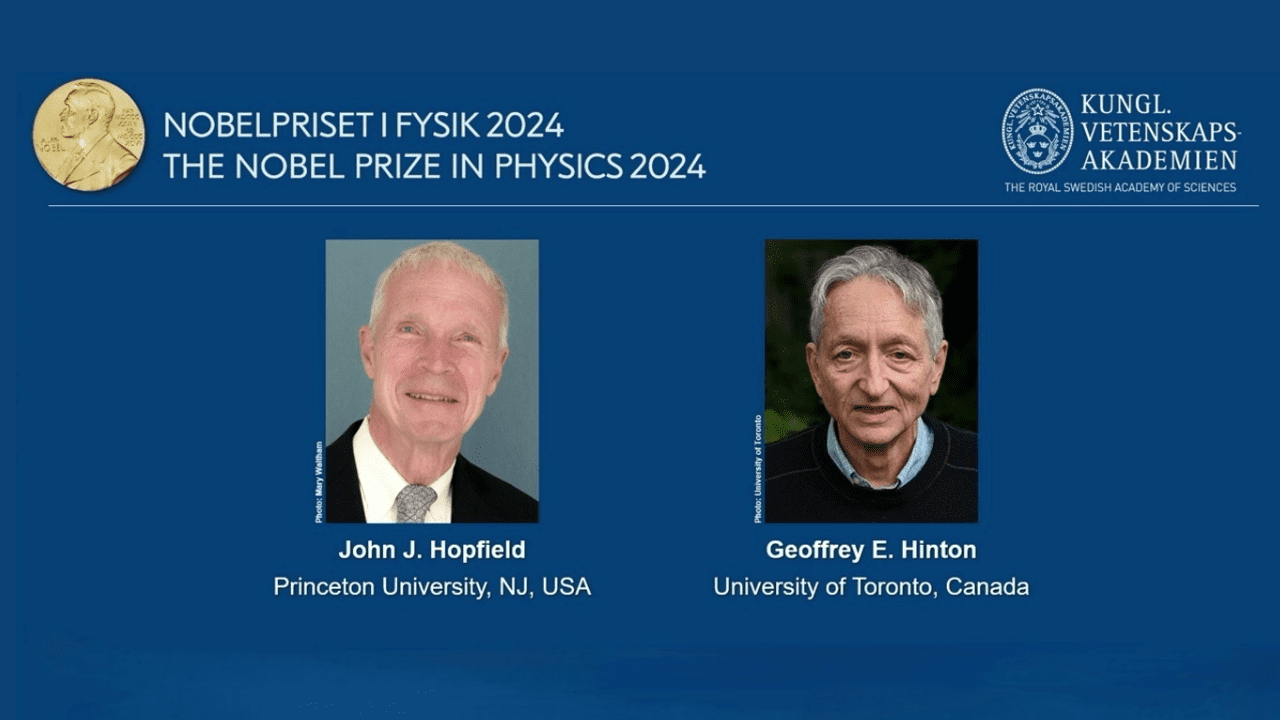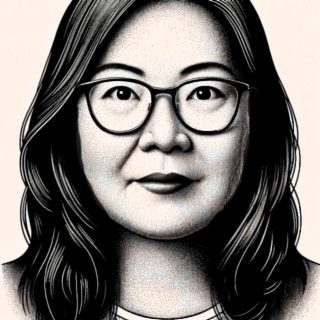TLDR
- Geoffrey Hinton, who has been called the godfather of AI, received the Nobel Prize in Physics today along with John Hopfield.
- Hinton is an emeritus professor of computer science from the University of Toronto. Hopfield is an emeritus professor of life sciences and also emeritus professor of molecular biology from Princeton University.
- Since 2023, months after the launch of ChatGPT, Hinton has been outspoken about the existential risks posed by machines that can surpass human intelligence.
Hear an AI-generated podcast explaining the science behind their innovations, based on this paper:
Two computer scientists won the Nobel Prize in physics for their work in artificial intelligence, the Royal Swedish Academy of Sciences announced today.
Geoffrey Hinton, emeritus professor of computer science at the University of Toronto who has been called the godfather of AI, and John Hopfield, emeritus professor of life sciences and also of molecular biology at Princeton University, received the recognition for “foundational discoveries and inventions that enable machine learning with artificial neural networks,” according to the academy.
The two will share a prize of 11 million Swedish kronor, or about $1.1 million.
Hinton told The New York Times that he was at a “cheap hotel” in California when he found out. He was also planning to get an MRI scan. “I think I’ll have to cancel that.”
Hopfield told the Times he was out and about in England during the announcement, getting a flu shot and having coffee. After getting home, he saw emails flooding his inbox. “I’ve never had so much email before in my life.”
What they pioneered
Hopfiled invented a type of artificial neural network that mimics how memory works in the brain, using connected neurons that ‘remember’ specific patterns. The Hopfield network is mainly used for pattern recognition and associative memory. It stores patterns such as images or data and recalls them when given part of the pattern, similar to how the brain recalls memories from partial cues.
Hinton used the Hopfield network as the foundation for a new artificial neural network called the Boltzmann machine. It solves complex computational problems by mimicking how neurons in the brain might work. It is used for tasks such as learning and optimization. It can recognize patterns, make decisions, and find optimal solutions to problems by exploring different possibilities.
Hinton had previously won the Turing Award in 2018, which is seen as the Nobel of computing.
However, Hinton has been outspoken about the dangers of artificial intelligence if it attains superintelligence and cannot be controlled by humanity. He quit his job at Google in May 2023 – months after ChatGPT’s debut – so he could advocate vocally about the existential threat AI poses.
In the same month, Hinton added his signature to a statement about AI risk from the Center for AI Safety calling for “mitigating the risk of extinction from AI” as a “global priority alongside other societal-scale risks such as pandemics and nuclear war.”
He has been giving speeches and media interviews about AI’s superintelligence risks, clashing with Meta Chief AI Scientist Yann LeCun who was his co-awardee for the Turing. LeCun often scoffs at the notion that AI poses an existential threat but rather will usher in a renaissance for human capability.
Hinton also shares the Turing with Yoshua Bengio, who is on his side about AI’s existential risks.

